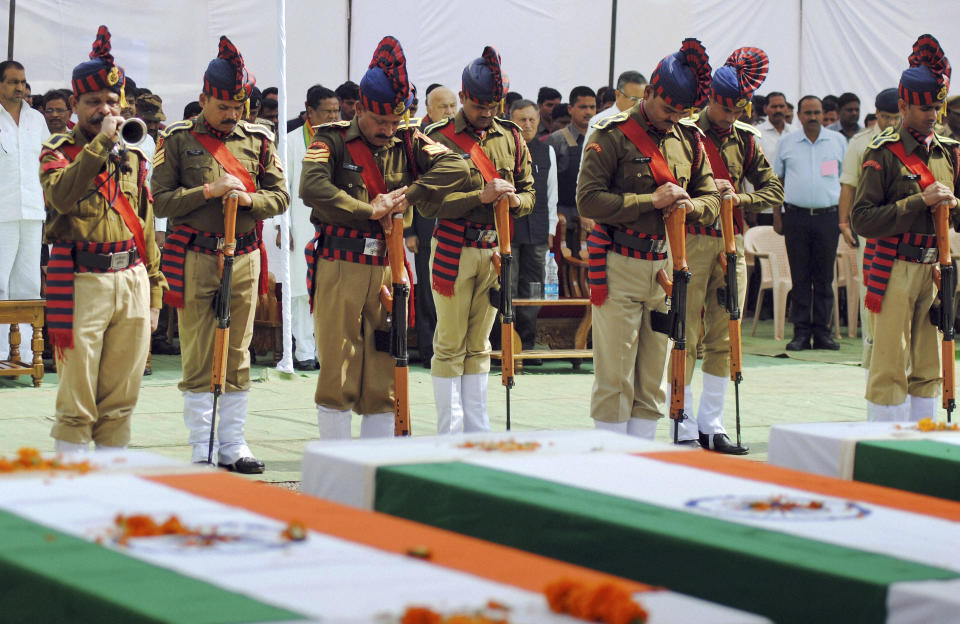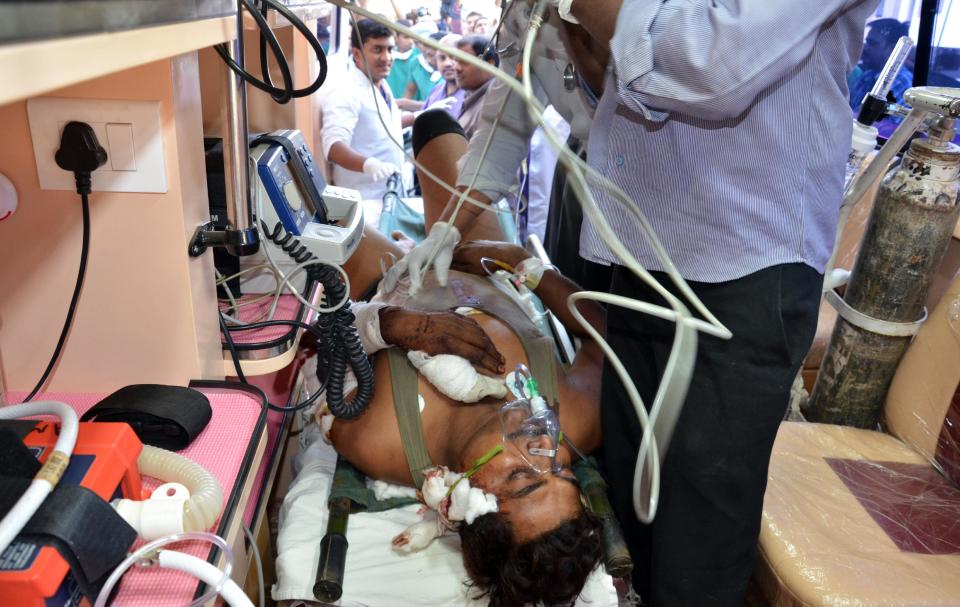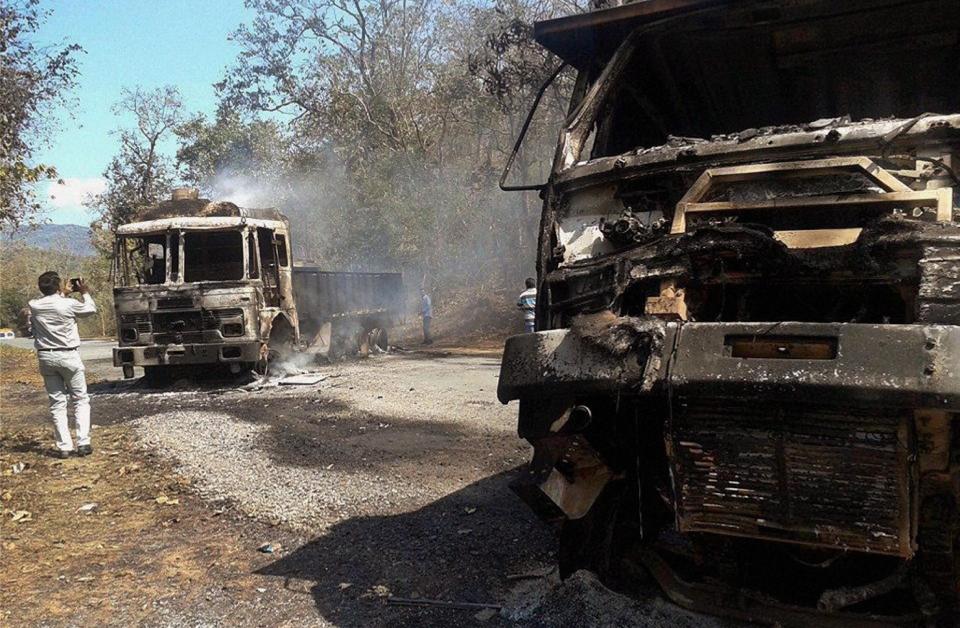Govt vows Maoist rebels won't ruin India elections
NEW DELHI (AP) — Maoist insurgents will not be allowed to spoil next month's Indian elections with violent attacks, the home minister said Wednesday, a day after rebels killed 16 people in their deadliest raid in almost a year.
About 200 rebels had ambushed a group of 44 troops and police guarding construction workers in the south of central Chhattisgarh state on Tuesday, police inspector general Mukesh Gupta said. He initially said 20 troops died but revised it to 16 early Wednesday, 15 law enforcement officers and one civilian.
Surviving troops engaged in a three-hour gunbattle with the rebels, who eventually escaped into nearby jungles within Sukma district. No casualties were reported for the rebels, who commonly take their dead and wounded back to their hideouts.
Two weeks earlier, the rebels had killed five security personnel in nearby Dantewada district.
Home Minister Sushilkumar Shinde said the national government had issued warnings to leaders in 20 of the 28 Indian states where rebels operate, and that authorities "would provide adequate security and will not allow the polls to be disrupted in any manner."
Tuesday's rebel attack was the deadliest since May 2013, when the Maoists killed 27 people in the same Jiram Ghati valley, including several state politicians from the nationally ruling Congress party. Another attack in the area in 2010 left 76 policemen dead.
Shinde said the rebels were trying "to frighten people before the national elections." But he said, without specifying where the information was coming from, that "support for the rebels is waning" and the rebels "are afraid their organizational strength is declining."
Schinde vowed to hunt down those involved in Tuesday's attack.
"We will definitely take revenge," he said in nationally televised comments from Jagdalpur, a city in southern Chhattisgarh near where the attack took place. "We know where they are." He did not elaborate.
The rebels, who say they are inspired by Chinese revolutionary leader Mao Zedong, have been fighting for more than three decades, staging hit-and-run attacks against Indian authorities as they demand a greater share of wealth from the area's natural resources and more jobs for farmers and the poor.
Prime Minister Manmohan Singh has called them India's greatest internal security threat. Thousands have died on both sides, but little has changed in the struggle, with politicians still debating whether a military operation to flush the rebels out of their jungle hideouts is preferable to offering better economic opportunities to assuage the rebel fury. Many Indians have grown weary of the conflict.
The rebels have called for a boycott of elections, which are being held nationwide over nine days in April and May so that security forces have time to move between polling districts.
The rebels say they represent the poor living close to the land, including farmers and members of tribal groups who depend on forests for food, fuel and building materials for their thatched huts. They oppose efforts to open up the area for more mining, fearing it would degrade forests and pollute water sources.
___
Follow Katy Daigle on Twitter at twitter.com/katydaigle





